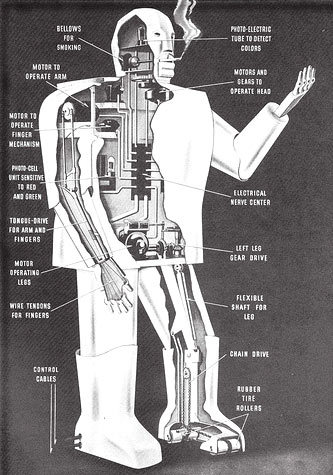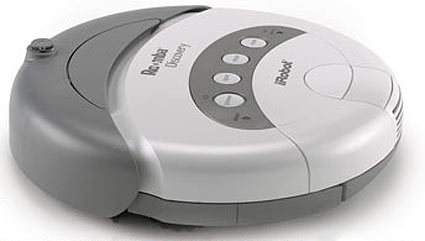The iRobot Create
Robots from Fantasy to Reality
Every time you hear the word 'Robot', you most likely conjure up an image of a stereotypical synthetic man. Perhaps you'll think of C3P0 from the Star Wars films, Mr. Data from Star Trek, or maybe the T1000 (Arnie!) from the Terminator films. The reason for these associations is pretty obvious: most of our exposure to robots is in the realm of science fiction and pop culture.
These same sources have been grooming us for a future where robots take away the boring and repetitive everyday tasks we have to perform. Since the 1930's, we've been promised that the not-too-distant future will bring mechanical minions to do our bidding and free us from boring everyday tasks. Of course, in reality, sci fi futures aside, robotics influences our lives minimally. Though robots have invaded the workplace and play a fairly major role in commercial and military applications, in 2007 human hands perform almost all the chores in a typical household.
"Elektro", he walked, he talked, and... he smoked cigarettes?
I say "almost all chores", because there is one place where robots have taken over manual labor in a relatively small number of homes, house cleaning. iRobot and other vendors have built robotic vacuum cleaners that in their own random way remove dirt and dust from floors and in some cases carpets.
The single most important step for in-home robotkind - the robotic vacuum cleaner.
The work isn't done by seven foot tall tin men. Rather these are devices built for the function of vacuuming. They don't walk, talk or smoke cigarettes. They don't even hold an upright vacuum in one hand. No, they more or less randomly move around on small wheels picking up dirt and dust using fairly standard rotating and stationary vacuum brushes.
This is an important characteristic of successful robots that contest entrants should keep in mind. Robots need not emulate the way human beings perform tasks. They should be designed to do a task in the least expensive, most effective way, with function controlling form and not vice versa.
Get Tom's Hardware's best news and in-depth reviews, straight to your inbox.
Don Woligroski was a former senior hardware editor for Tom's Hardware. He has covered a wide range of PC hardware topics, including CPUs, GPUs, system building, and emerging technologies.

